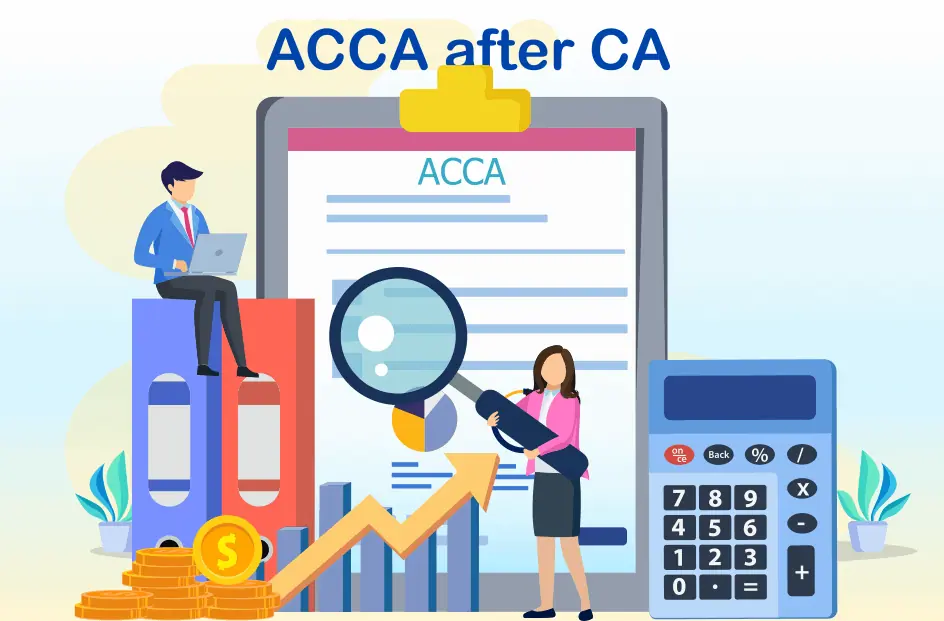A Bachelor of Science (BSc) degree is an important achievement that offers many career options. After graduating with a BSc degree, students can choose to continue their studies, start working, or get certifications. The best choice depends on their interests and career goals.
Many BSc graduates pursue higher studies to gain more knowledge in their field. A Master of Science (MSc) allows them to specialize and improve their research skills. BSc graduates have the advantage of studying different fields such as MBA, BED, and LLB. Certifications in Data Science, Artificial Intelligence (AI), and Machine Learning provide opportunities in the fast-growing tech industry.
Graduates can also enter the workforce directly in areas like research, healthcare, IT, education, and more in both the private and government sectors.
Choosing the right path depends on your interests, career objectives, and market demand. Let’s explore these options in detail.
BSc Course
Students can earn a Bachelor of Science (BSc) degree by enrolling in an undergraduate program that typically lasts 3-4 years. Some popular options include science, healthcare, visual effects (VFX), film, and other industry-relevant areas. Throughout the course, students are introduced to key theoretical concepts while also gaining hands-on experience through practical training. This combination of knowledge and skills helps prepare them for various professional careers after graduation.
What can I do after a BSc?
Graduates who finish their BSc program ask themselves What can I do after bsc? The response consists of two major options: continuing education or starting a job. Let’s see in detail what option BSc graduates get in both.
Higher studies
Your studies will enhance your skills and open doors to specialized roles. Students can explore the following courses after a BSc:
Master of Science (MSc): Through MSc programs, students gain advanced knowledge regarding their undergraduate major. Physics BSc students might continue their studies by obtaining an Astrophysics MSc. The research and academic path suits candidates who want to work in these fields.
Master of Business Administration (MBA): BSc graduates should select an MBA when they want to advance into management positions or scientific business duties. The special fields of Technology Management and Healthcare Management offer suitable options for graduates.
Master of Computer Applications (MCA): Students interested in IT should consider an MCA to gain advanced computer science knowledge which prepares them for software development roles as well as system analysis functions.
LLB: The 3-year LLB (Bachelor of Legislative Law) program prepares students for careers in law, such as legal advisors, lawyers, or roles in the judicial system. It is commonly pursued after completing a bachelor’s degree like B.Sc., B.Com., B.A., or B.Tech. To be eligible, students need at least 45% marks in their undergraduate degree (40% for reserved categories). After graduation, law students can start as advocates and later become corporate lawyers, legal consultants, or public prosecutors. Some may also take judicial service exams to become judges.
B.Ed: The B.Ed (Bachelor of Education) is a 2-year professional course that trains future teachers in India. It covers teaching methods, classroom management, and child behaviour to help students become effective educators. To join a B.Ed program, candidates must have a bachelor’s degree in fields like B.Sc., B.A., or B.Com with at least 50–55% marks. B.Ed graduates often start as school teachers and can later become vice principals or principals. For those interested in leadership roles or curriculum planning, advanced studies like M.Ed or Ph.D. are available.
Your career goals and personal interests should guide your choice of course based on its specific requirements.
Job opportunities
1. Government Jobs
Government jobs offer job security, good pay, and additional benefits. After a B.Sc., you can prepare for various competitive exams:
(a) Banking Sector Jobs
Exams to Prepare:
- IBPS PO (Probationary Officer)
- IBPS Clerk
- SBI PO / SBI Clerk
- RBI Assistant
- NABARD Grade A & B
Job Roles: Bank PO, Clerk, Financial Analyst, IT Officer, Risk Manager
(b) UPSC & State PSC (Public Service Commission)
Exams to Prepare:
- UPSC Civil Services Exam (IAS, IPS, IFS, IRS)
- State PSC Exams (for State Administrative Services)
Job Roles: IAS, IPS, IFS Officer, District Collector, Revenue Officer, State Government Officer
(c) Defence Jobs (CDS, AFCAT, INET)
Exams to Prepare:
- CDS (Combined Defence Services) for Army, Navy, Air Force
- AFCAT (Air Force Common Admission Test) for the Indian Air Force
- INET (Indian Navy Entrance Test)
Job Roles: Army Officer, Navy Officer, Air Force Officer
(d) SSC CGL & Other Government Jobs
Exams to Prepare:
- SSC CGL (Staff Selection Commission – Combined Graduate Level)
- Railways (RRB NTPC, RRB JE)
Job Roles: Income Tax Officer, Auditor, Railway Officer, Customs Officer
2. Healthcare Sector
B.Sc. graduates in life sciences, nursing, and allied fields have various career opportunities in healthcare:
(a) Nursing & Allied Fields
Courses: B.Sc. Nursing, B.Sc. MLT, B.Sc optometry, B. Sc. RDT, B. Sc. MIT etc.
Job Roles: Staff Nurse, Nursing Officer, Hospital Administrator
Recruiters: AIIMS, ESIC, Railways, Private Hospitals
(b) Physiotherapy & Rehabilitation
Courses: Bachelor’s/Master’s in Physiotherapy (BPT/MPT)
Job Roles: Physiotherapist in Hospitals, Sports Centres, Rehab Clinics
(c) Lab Technician / Pathology
Courses: M.Sc. in Pathology, Medical Lab Technology
Job Roles: Lab Technician, Pathologist, Clinical Researcher
3. Teaching Jobs
Teaching is a highly respected profession, and various exams qualify you for school or college teaching:
(a) School Teaching (TET / CTET)
Exams to Prepare:
- TET (Teacher Eligibility Test) – For government school teachers
- CTET (Central Teacher Eligibility Test) – For central government schools like Kendriya Vidyalaya, Navodaya
Job Roles: Science Teacher, Mathematics Teacher
(b) College / University Teaching (CSIR NET / UGC NET)- You will have to complete MSc or 4-year BSc
Exams to Prepare:
- CSIR NET (For Science stream Assistant Professor & Research)
- UGC NET (For other subjects, Assistant Professor & Ph.D. admission)
Job Roles: Lecturer, Assistant Professor, Research Fellow
4. Research & Higher Studies
If you’re interested in research, several options are available:
(a) CSIR NET / UGC NET for Research
Exams to Prepare: CSIR NET (For JRF & Ph.D. admissions)
Job Roles: Research Scientist, Junior Research Fellow (JRF), Scientist in CSIR, DRDO, ISRO
(b) GATE (For M.Sc & PSU Jobs)
Exams to Prepare: GATE (Graduate Aptitude Test in Engineering)
Job Roles:
Admission to M.Sc. Programs in IITs, NITs
PSU (Public Sector Unit) Jobs – ONGC, BHEL, IOCL, DRDO
(c) ASRB NET (For Agriculture & Research Fields)
Exams to Prepare: ASR NET for research in agriculture
Job Roles: Agricultural Scientist
5. IT & Data Science Jobs
With digital transformation, IT and Data Science offer high-paying jobs:
(a) IT & Software Development
Courses: B.Sc. IT, B.Sc. Computer Science, MCA, Data Science Certifications
Job Roles: Software Developer, Cyber Security Analyst, AI Engineer
Recruiters: TCS, Infosys, Wipro, Google, Microsoft
(b) Data Science & Analytics
Courses: M.Sc. in Data Science, Machine Learning Certifications
Job Roles: Data Analyst, Business Analyst, Statistician
Recruiters: Amazon, Deloitte, Accenture
6. Maritime & Shipping Industry
If you’re interested in the merchant navy, this is a great career choice:
(a) Deck Captain / Merchant Navy
Courses: B.Sc. Nautical Science, Diploma in Marine Engineering
Job Roles: Deck Officer, Captain, Marine Engineer
Recruiters: Shipping Companies, Indian Navy, Merchant Navy
7. Agriculture Sector
Agriculture-based careers are growing in demand due to government initiatives:
(a) Agricultural Officer & Scientist
Exams to Prepare:
ICAR AIEEA (For M.Sc. in Agriculture)
NABARD (For banking in agriculture)
Job Roles: Agricultural Scientist, Agri-Officer, Horticulturist
Recruiters: ICAR, FCI, NABARD
8. Food & Quality Inspection Jobs
Food safety and quality control are vital in the food industry:
(a) Food Quality Inspector & Food Analyst
Exams to Prepare:
FSSAI Food Safety Officer Exam
ICAR for food technology research
Job Roles: Food Inspector, Quality Analyst, Food Technologist
Recruiters: FSSAI, Food Processing Companies, Amul, Nestle
(b) Dairy Technology & Food Processing
Courses: B.Sc. / M.Sc. in Dairy Technology
Job Roles: Dairy Technologist, Milk Quality Controller
Recruiters: NDDB, Mother Dairy, Amul
9. Private Sector & Corporate Jobs
Many B.Sc. graduates find great opportunities in private companies:
(a) Biotechnology & Pharmaceuticals
Job Roles: Research Scientist, QC Analyst, Biotech Engineer
Recruiters: Pfizer, Cipla, Biocon
(b) Environmental Science & Sustainability
Job Roles: Environmental Scientist, Pollution Control Analyst
Recruiters: Pollution Control Boards, NGOs
(c) Chemical & Manufacturing Industry
Job Roles: Process Engineer, Quality Control Inspector
Recruiters: Tata Chemicals, Reliance, Bharat Petroleum
Conclusion
BSc courses offer students a wide range of career opportunities across many growing industries. The degree remains valuable in today’s job market, especially as fields like science, technology, healthcare, and environmental studies continue to grow.
With a BSc specialization, students can work in research, education, IT, healthcare, biotechnology, agriculture, environmental science, and industry. The BSc degree supports ongoing learning and career growth, giving students many chances to build successful and fulfilling careers, especially when they stay updated with current industry trends.



